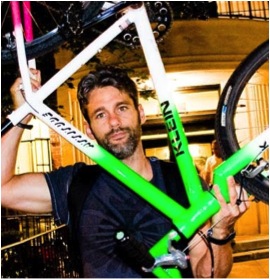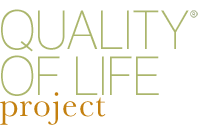 I recently had the opportunity to interview Scott Hahn. Great guy, best known for his role as a founder and leader at Rogan, a revolutionary player in the fashion industry. Rogan is the edge with its design and its sustainable sourcing methods and environmental practices.
I recently had the opportunity to interview Scott Hahn. Great guy, best known for his role as a founder and leader at Rogan, a revolutionary player in the fashion industry. Rogan is the edge with its design and its sustainable sourcing methods and environmental practices.
It was one of my best interviews. He is the definition of quiet confidence and has a piercing, inviting intensity about him. He is a person who is both gentle and fierce. As I found out in my interview, a lot of this comes from his practices of humility, intellectual curiousity, and physical exercise methods. More on that at qualityoflifeproject.org/author/scott-hahn/
We talked about a lot of things but I was most struck by what Scott said when I asked him about whether he is good at giving people the benefit of the doubt in life:
“I was very resentful of my father growing up for not being in my life at all. Sadly, he passed away a few years ago from cancer but before he died I had a chance to go see him in Scotland where he lives. It was one of the most important experiences in my life to spend time with a father I had barely known and to become reconciled. I had made him out as a monster. But when I took the step to simply be with him I was able to hear his side of the story and come to realize that he has always loved my sister and me unconditionally. That was a really wild experience. He’s got four other kids that are great and we’re connected now. Obviously an experience like this has had a huge impact on me in terms of better assuming the good intent from others.”
Can you imagine what a powerful life experience this must have been? On so many levels. Scott went on to talk about how this learning experience has made him a freer person by not allowing his energy to be consumed by assuming or dwelling on when others have wronged him.
For all of us that has had a life lesson on this front, are there not so many quality of life dividends to adopting this “assume positive intent” mindset? I’ll share with you my own personal experience. It was one of the most transformational episodes of my life.
After I graduated from UCLA in 1994, I was preparing to move to San Francisco for a job, and I talked to a friend of mine from college who is from the Bay Area and was also planning to move up there. Since I didn’t know anyone up there, I was happy when he insisted I call him right when I get up there and that he would introduce me to some cool guys to hang out with up there. During my first four months in San Francisco, I called my friend three times and never heard back. I started to nurture my inner chipped shoulder and was building some real resentment towards my friend. I was all pissed off — “screw him” etc. — and self righteous about the whole thing.
A few months later, I ran across my friend at a party and I was about to give him a “WTF, man” when he looked in my eyes with sadness and warmth I can still feel and told me how his dad was diagnosed with cancer a few months back and what a wreck his life has been. Ok, pause here for a second Can you imagine what a self centered loser I felt like? Lets just say that it wasn’t about me. I remember right there telling myself to learn a lesson or be damned. The reality is I did follow up on my commitment and did learn my lesson. [My friend’s father did beat his disease and is now very healthy for his age.]
Lessons from all this? I think first of all, others deserve the benefit of the doubt from you. In fact, is it not sort of a moral issue to damn people for scenarios that you are not certain exist? But the greatest benefit to assuming this mindset is the self serving reason. You feel so much better as a person when you simply move on when you find yourself thinking about why this person didn’t call you back or why you weren’t invited to a party or how that person is undermining you at work. Don’t play the game. You will feel more freed up and ironically your relationships with those you suspect of undermining you will flourish.
Indra Nooyi, Chairman and CEO of Pepsi, says it best in an interview with Fortune magazine earlier this year:
“My father was an absolutely wonderful human being. From him I learned to always assume positive intent. Whatever anybody says or does, assume positive intent. You will be amazed at how your whole approach to a person or problem becomes very different. When you assume negative intent, you’re angry. If you take away that anger and assume positive intent, you will be amazed. Your emotional quotient goes up because you are no longer almost random in your response. You don’t get defensive. You don’t scream. You are trying to understand and listen because at your basic core you are saying, “Maybe they are saying something to me that I’m not hearing.” So “assume positive intent” has been a huge piece of advice for me.
In business, sometimes in the heat of the moment, people say things. You can either misconstrue what they’re saying and assume they are trying to put you down, or you can say, “Wait a minute. Let me really get behind what they are saying to understand whether they’re reacting because they’re hurt, upset, confused, or they don’t understand what it is I’ve asked them to do.” If you react from a negative perspective – because you didn’t like the way they reacted – then it just becomes two negatives fighting each other. But when you assume positive intent, I think often what happens is the other person says, “Hey, wait a minute, maybe I’m wrong in reacting the way I do because this person is really making an effort.”
“Assume positive intent” is definitely a top quality of life best practice among the people I have interviewed for my book. The reasons are obvious. It will make you feel better, your realtionships will thrive and it’s an approach more greatly aligned with reality.
